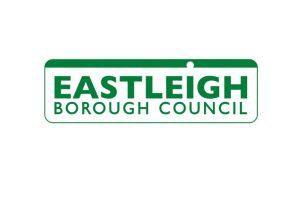Summary:
- Online career courses offer flexible, affordable, and recognised qualifications that can boost your CV and career prospects.
- Our list includes both degree-level programmes (e.g., management, cybersecurity, AI) and vocational/professional certifications (e.g., nutrition, life coaching, PR, blogging).
- Course fees range from free to several thousand pounds, making them accessible to learners with different budgets.
- Each programme is tied to clear career outcomes, with average UK salary data included for transparency.
- Recognised institutions such as Oxford, Imperial, The Open University, and South London College provide credibility and professional accreditation.
Looking to pick up a new skill to earn a higher salary or progress your career?
If you want to add some certificates to your CV to propel your career, or you consider switching to another career path, you should seriously consider: E-Learning. It’s convenient, flexible and often far more affordable.
Revenue in the online learning platforms market is forecast to reach £46.84 billion in 2025, with growth projected at a compound annual rate of 5.81% between 2025 and 2029, taking the market to an estimated £57.50 billion by 2029.
Today’s job market requires one to stand out from the crowd. You need to have solid proof of the skills and value you offer to a business or client while things change quickly.
Online courses are usually shorter and more flexible, and affordable than an average online university or college degree or a university semester. They are typically self-regulated, where you choose the pace for completing your course.

With thousands of professional online programmes now available, learners have access to globally recognised universities, business schools, and accredited institutions without even stepping into a classroom.
From leadership and management diplomas to technical qualifications in AI, cybersecurity, and nutrition, online education provides career-focused pathways that are both credible and accessible.
To make things clearer, this article groups the recommendations into two categories:
1. Courses with a degree or higher qualification.
2. Courses without a degree or higher qualification.
This way, you can decide between pursuing a formal academic route or choosing a faster vocational course, both designed to provide affordable learning options to open the door to better career prospects, higher pay, and a more successful future career.
Disclaimer: The information shared in this post was correct at the time of publication, but may be subject to change. The listed online courses are arranged according to the UKEB trust scores from highest to lowest.
The UKEB trust score in this article is calculated using four measurable factors reflecting the aspects that most influence a learner’s overall experience and career outcomes:
- Yearly income potential: 50% of final score (higher → better)
- One-time course fee: 30% (lower → better)
- Course duration: 20% (shorter → better)
These scores are calculated using publicly available data. The score of each listing is converted into a final UKEB Trust Score on a 10-point scale.
|
Online Courses |
Income Potential |
Course Fee |
Course Duration |
Trust Score (/10) |
|---|---|---|---|---|
|
Diploma in Management |
10.00 |
9.58 |
7.39 |
9.35 |
|
Machine Learning and Artificial Intelligence |
5.95 |
8.38 |
8.58 |
7.21 |
|
Project Management |
3.89 |
9.76 |
10.00 |
6.87 |
|
Level 3 Award in Nutrition for Physical Activity |
2.44 |
9.82 |
8.90 |
5.95 |
|
Life Coaching Course |
2.44 |
9.72 |
8.64 |
5.86 |
|
Accredited Public Relations Course |
2.03 |
9.79 |
9.02 |
5.76 |
|
Blog Profits Blueprint |
1.00 |
10.00 |
9.52 |
5.40 |
|
BSc (Honours) Cyber Security |
3.89 |
1.00 |
1.00 |
2.44 |
So, which courses can help shape your future career path? Read on to find out!
3 Top Courses with a Degree or Higher Qualification:
1. Diploma in Management (Managing People) by The South London College | UKEB Trust Score 9.35/10

This flexible, fully online Level 6 Extended Diploma in Management is equivalent to the final year of a bachelor’s degree. It equips middle to senior managers with advanced leadership, strategic decision-making and HR strategy skills through eight assessed units, delivered via a dedicated tutor and e-learning modules.
Suitable for:
- Middle and senior managers aiming to progress into higher leadership roles.
- Operations and HR professionals seeking advanced people-management expertise.
- Entrepreneurs, business owners and heads of departments are building strategic leadership capacity.
- Individuals preparing to step into senior management positions.
Course Fee:
- Current promotional rate is £1,079 (standard plan; 40% off the original £1,799 price).
Course Length:
- Standard pathway: 9–12 months.
- Fast-track: complete in 5 months.
Career & Income Scope:
- The average base pay of an HR Manager is £75,614 per year
- Leads to advanced roles such as:
- Head of Department
- Human Resource Manager
- Senior, Operations, Business Manager
- Business Consultant
- Business Owner
- Entrepreneur
- HR Professional
Certifications:
- ATHE Level 6 Extended Diploma in Management is an RQF qualification regulated and approved by Ofqual. This gives the diploma robust credibility and ensures it’s aligned with national standards in England.
- Recognised for academic progression toward postgraduate study, including eligibility for MBA exemptions.
2. Machine Learning and Artificial Intelligence by The Imperial Business School | UKEB Trust Score 7.21/10

The Professional Certificate in Machine Learning and Artificial Intelligence is an online programme by Imperial College Business School in collaboration with the Department of Computing. It blends technical expertise in Python programming, deep learning, and model optimisation with commercial applications, preparing participants to address real-world business challenges. The curriculum includes interactive video sessions, coding exercises, and a capstone project that results in a portfolio showcasing applied AI solutions.
Suitable for:
- IT and engineering professionals seeking hands-on ML/AI training, including software engineers and developers.
- Data and analytics specialists, including business analysts, senior analysts, and data scientists, who aim to apply AI tools.
- STEM graduates and academics are pursuing careers in emerging AI fields with global impact.
Course Fee:
- £4,199, inclusive of course content, faculty support and digital resources.
Course Length:
- 25 weeks, part-time and fully online.
Career & Income Scope:
- The average base pay in the UK for an AI Engineer is £56,000 per year.
- Career outcomes include:
- Machine Learning Engineer
- Data Scientist
- AI Consultant
- Business Intelligence Specialist
Certifications:
- Verified digital certificate from Imperial College Business School Executive Education.
3. Project Management by The Oxford Lifelong Learning | UKEB Trust Score 6.87/10

This intensive online project management course explores the nature of managing projects by emphasising the core questions essential to success, rather than relying solely on rigid processes. It addresses common pitfalls such as benefit shortfalls, cost overruns and delays, and demonstrates how to strategically select, prioritise and deliver projects that align with organisational objectives.
Suitable for:
- Engineers, managers and professionals with project responsibilities.
- Individuals in both the public and private sector organisations.
- Those with some prior project management experience are seeking updated best practice knowledge.
Course Fee:
- £615.00 (VAT exempt).
- Includes electronic copies of all course materials.
Course Length:
- Duration: 3 days.
- Format: 90-minute live online sessions daily.
- Platform: Microsoft Teams, 10:30 am – 12:00 pm UK time.
Career & Income Scope:
- The average base salary for project management roles in the UK is £46,000 per year.
- Skills gained are applicable across IT, construction, healthcare, finance and public services.
- Prepares learners for roles such as:
- Project Manager
- Programme Manager
- Project Coordinator
- Business Analyst
- Operations Manager
Certifications:
- University of Oxford digital certificate of attendance.
- Downloadable and shareable on professional platforms.
5 Top Courses without a Degree or Higher Qualification:
1. Level 3 Award in Nutrition for Physical Activity by The South London College | UKEB Trust Score 5.93/10

This online Level 3 Award in Nutrition for Physical Activity, awarded by Focus Awards, equips learners with evidence-based nutritional principles and skills tailored to the fitness sector. The course combines theory and practice, including designing dietary guidance for clients, through self-study, tutor support, and portfolio submissions in place of exams. It is also recognised by AfN and CIMSPA, and contributes 8 UCAS points.
Suitable for:
- Personal trainers, gym instructors, wellness coaches and other fitness professionals seeking to incorporate nutrition advice into their services.
- Aspiring nutrition advisors keen to specialise in weight management or lifestyle coaching, within a regulated qualification framework.
Course Fee:
- Current promotional rate is £479 (standard plan; 40% off the original £289 price).
- Interest-free instalments available (e.g., £58/month over 6 months with a £35 deposit).
Course Length:
- Guided Learning Hours: 38 hours; Total Qualification Time: 60 hours.
- Typically completed in 3-6 months, with access for up to 12 months.
Career & Income Scope:
- The average UK base salary for a Senior Nutritionist is £39,000 per year.
- Prepares learners for roles offering nutrition-related support in fitness settings.
Certifications:
- It is a nationally recognised qualification regulated by Ofqual under the RQF framework.
- Endorsed by AfN and recognised by CIMSPA, adding professional credibility within the health and fitness industry.
2. Life Coaching Course by The International Career Institute | UKEB Trust Score 5.86/10

This fully online Life Coaching Diploma from the International Career Institute combines theory and practice across modules like coaching processes, psychology, objectives and counselling. Delivered via distance learning with personalised tutor support, it empowers learners to become qualified life coaches at their own pace.
Suitable for:
- Anyone passionate about helping others reach personal or professional goals, with no entry requirements.
Course Fee:
- £718 for a one-off payment.
- Or interest-free weekly plan: £25 over 32 weeks (£798 total).
Course Length:
- Typically completed in 24 weeks.
- Flexible pace allows up to 3 years for completion.
Career & Income Scope:
- The average UK base salary for a life coach is £38,957 per year.
- Prepares learners for roles as professional life coaches.
Certifications:
- Graduation certificate formally recognising qualification as a life coach.
- Academic transcript outlining completed study units.
- Official letter of recommendation for use with current or prospective employers.
- Eligibility to use post-nominal letters (DipLC) as proof of professional standing.
3. Accredited Public Relations Course (QLS Level 4) by The College of Media and Publishing | UKEB Trust Score 5.76/10

This fully online, flexible Public Relations course (QLS Level 4) equips learners with practical PR and communications skills, from media relations to crisis management. It features self-paced, tutor-marked assignments and unlimited mentor support, alongside expert career guidance to help build a strong foundational portfolio in PR.
Suitable for:
- Aspiring PR practitioners and marketing professionals looking to build essential comms skills.
- Business owners and freelancers aiming for credibility in client-facing communication roles.
- Existing PR staff seeking refreshed knowledge and practical feedback from an experienced tutor.
Course Fee:
- £549.50 (one-off payment).
- Alternatively: 4 monthly instalments of £137.37.
Course Length:
- Fully self-paced with no deadlines.
- Typically completed in around 4 months at a pace of 4 hours per week.
Career & Income Scope:
- Prepares learners for roles like PR Consultant, with an average UK base salary of £37,000 per year.
- Provides practical experience applicable to PR, communication and marketing careers.
Certifications:
- CMP Diploma in Public Relations, accredited and recognised in the UK and internationally.
- Certificate of Achievement endorsed under The Quality Licence Scheme (Skills and Education Group).
4. Blog Profits Blueprint by SeekaHost University | UKEB Trust Score 5.40/10

The Blog Profits Blueprint is a practical, online programme led by instructor Fernando Raymond. It teaches a seven-step system, from niche selection, getting a domain and hosting via SeekaHost, to building and monetising a WordPress blog. Drawing directly from success stories like the UK News Blog and UK Business Blog, the course equips learners to launch profit-generating blogs and refine a scalable “blog-for-profits” model.
Suitable for:
- Aspiring bloggers keen to create monetised niche websites.
- Individuals seeking passive income from blogging use repeatable, scalable methods.
- Those already familiar with WordPress and eager to capitalise on it for profit.
Course Fee:
- The course is free of charge and provides instant access upon enrolment.
- Delivered entirely through the SeekaHost University platform.
Course Length:
- Self-paced and online, enabling learners to proceed at their own rate.
Career & Income Scope:
- Average UK base pay for blogging roles: £32,000 per year.
- Prepares learners for careers as bloggers and digital content creators.
Certifications:
- Completion certificate from SeekaHost University, demonstrating proficiency in blog monetisation techniques.
5. BSc (Honours) Cyber Security by The Open University | UKEB Trust Score 2.44/10

The BSc (Honours) Cyber Security is an online degree covering network security, digital forensics and socio-technical systems. Based on CyBOK principles, it combines theory with practical projects, preparing graduates to analyse threats, design secure systems and manage cyber incidents across sectors.
Suitable for:
- Those looking for an open-access route into cybersecurity, with no formal entry requirements.
- Working professionals seeking to enhance skills for cyber roles in computing or IT.
- Career-changers aiming to enter a high-demand security field in the public or private sectors.
Course Fee:
- Full-time: £7,784 per year over 3 years.
- Part-time: £3,892 per year over 6 years.
- Fees are paid annually, with loan and funding options available through The Open University.
Course Length:
- Full-time track: 3 years
- Part-time option: 6 years (maximum allowed: 16 years)
- Workload typically requires 16-18 hours of study per week per 60 credits
Career & Income Scope:
- The average base salary for cybersecurity professionals in the UK is £46,000 per year.
- Graduates can pursue roles such as:
- Software Security Architect
- Penetration Tester
- Digital Forensic Investigator
- SOC Analyst
- Security Analyst
- IT Consultant
Certifications:
- Upon completion, awarded a BSc (Honours) Cyber Security by The Open University, recognised nationally and internationally for further study or employment.
Ready for a new Career with a Future?
Identify something you’re passionate about with future potential. Our featured online courses might point you in the right direction to gain the knowledge and skills to take you further; it’s a simple step towards improving your skillset.
With the right focus, you can build a thriving future career that truly reflects your interests and ambitions while being in high demand. Whether you’re a student or a working professional, it’s never too late to pursue a distinctive career path that offers the lifestyle you’ve always wanted.
If you want us to add a suggestion here based on your experience, please get in touch with us!















 Theme puzzle books offer eager students mental challenges and entertainment while acquiring new vocabulary. A favorite series of
Theme puzzle books offer eager students mental challenges and entertainment while acquiring new vocabulary. A favorite series of 
 Another innovative technique is writing about experiences, real or imaginary, in Italian. A quality travel journal and organizer, for example, invites you to document itineraries, feelings and discoveries. By logging your traveling experiences, daily routine and self-observation, you’ll solidify your vocabulary.
Another innovative technique is writing about experiences, real or imaginary, in Italian. A quality travel journal and organizer, for example, invites you to document itineraries, feelings and discoveries. By logging your traveling experiences, daily routine and self-observation, you’ll solidify your vocabulary. Bilingual books allow you to read stories in two languages at once. A title switches between English pages and Italian pages in The Broken Heart Refuge (Il Rifugio dei Cuori Infranti). It reads better for you to track the story. You can read the book and catch grammar, sentence construction and idiom nuances.
Bilingual books allow you to read stories in two languages at once. A title switches between English pages and Italian pages in The Broken Heart Refuge (Il Rifugio dei Cuori Infranti). It reads better for you to track the story. You can read the book and catch grammar, sentence construction and idiom nuances.


































